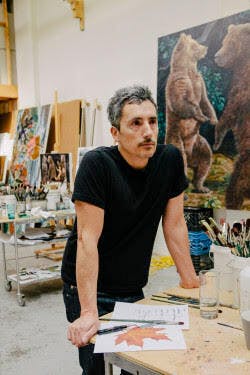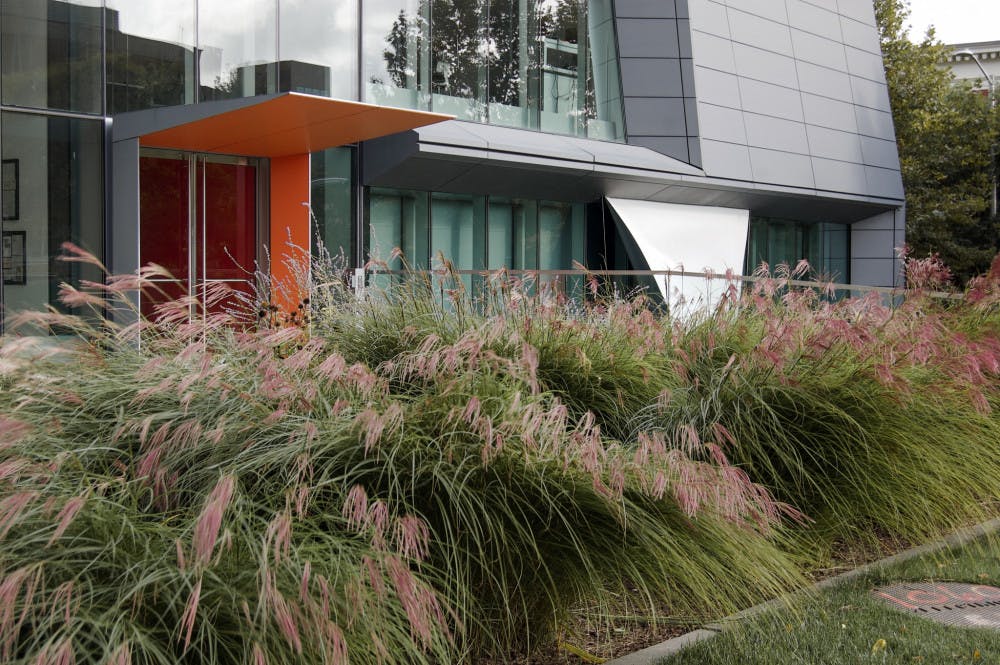The Brown Arts Initiative invited students to join in “Remaking the REAL,” this past week, engaging artists, media makers and art and media theorists in conversations related to images and narratives of reality.
Though BAI began planning the festival in fall 2019, its primary theme has become even more relevant in 2020 as the line between the real and the virtual has become increasingly blurry.
The events were presented over a variety of platforms including Zoom, YouTube Live, Google Meet and BAI’s website — as well as in-person, as participants can view the “State of Urgency” exhibition through a west-facing glass window in the Cohen Gallery of the Perry and Marty Granoff Center for the Creative Arts.
“BAI has done a really great job. It’s a testament to their ability to pull things together and keep art alive in this strange time,” said Marisa Angell Brown, assistant director for programs at the John Nicholas Brown Center.
The festival is an “attempt to address issues of artistic connections and corrections to historical records and archives, and constructing personae as strategies of artistic, authorial and performative creation,” according to BAI’s website. The goal is, in short, “to get people thinking and talking about (or) even just seeing fantastic new art,” Brown said.
The festival opened on Monday with an address by keynote speaker Kent Monkman, an interdisciplinary artist and member of the Fisher River Cree Nation.
[caption id="" align="alignleft" width="250"]
“His work asks a lot of questions about the representation of indigenous people in historic art and tries to change the ways we think about Native work,” Brown said. His address was followed by film screenings, talks, conversations, workshops, performances and an exhibition of posters entitled “State of Urgency” inspired by the summer 2020 protest marches.
Rhode Island School of Design professor Erik DeLuca also collaborated with saxophonist Leland Baker and tap dancer Orlando Hernández in producing a performance called “Pass Me Not.”
When BAI approached DeLuca for the festival, he said he wanted to “focus on art as an evolving process of dialogue.” DeLuca was a visiting assistant professor of music and multimedia at the University from 2018 to spring 2020. During the recording process, DeLuca, Baker and Hernandez focused their discussion on “how they remake the real through their musical collaborations,” DeLuca said. He recalled that in one recording session, “out of nowhere, a wire from behind the set fell on us, interrupting our discussion.” They decided to keep this accident in the final recording because it forces the audience to consider “the stuff underground, behind the stage and off the record.”
This focus on the behind-the-scenes aspect of art-making continued in the showing of films “Dawson City: Frozen Time” by Bill Morrison and “Shulie” by Elisabeth Subrin. The former uncovers previously hidden reels from early 20th century Hollywood films. The latter travels back to the late 1960s to rediscover the life of a revolutionary female artist, Shulamith Firestone, and the constraints of the era in which she lived.
The festival’s artist panel, titled “Where are We Now,” also discussed more current artistic expressions. Artists Shey Rivera Ríos, Nafis White and Joey “La Neve” DeFrancesco shared “their experiences remaking their own artistic realities, putting forth new concepts of realness and shifting audiences’ understanding of the before, the now and the future,” according to BAI’s website.
Panelist La Neve reflected on the discussion and on her own performance, “Remote Learning.” She received BAI’s community grant near the beginning of COVID-19 lockdowns in the United States.
“Musicians' income has entirely evaporated with COVID-19 and the cancellation of live (performances). Given streaming services’ paltry payments, and our government's failure to provide sustained relief, these sorts of grants have been extremely helpful,” she wrote in an email to The Herald. “I hope by thinking more deeply about the nature of live streaming, we can move toward a model that is more economically sustainable and artistically fulfilling for everyone involved,” she added. To combat the economic challenges faced by artists online, she also suggested that artists should join the new Union of Musicians and Allied Workers “so we can begin to push back on tech companies and demand real income.”

ADVERTISEMENT




